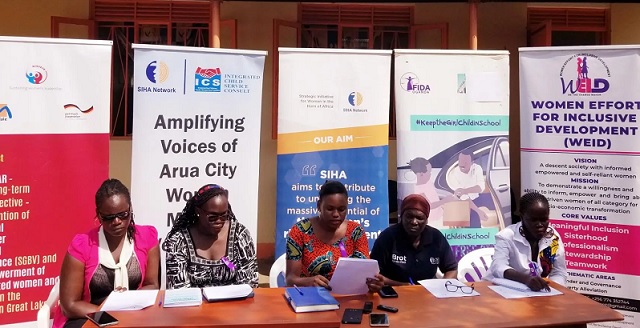
Arua, Uganda | THE INDEPENDENT | Women rights activists in Arua city are calling for the establishment of Gender Based Violence (GBV) shelters to accommodate and protect the survivors of violence. Their demand comes amidst the rising cases of violence especially sexual violence against girls and women in the city.
According to statistics from the child and family protection unit at Arua central police station, at least 544 cases of violence against women and girls were recorded last year, which is higher than 377 cases recorded in 2021. Of the 544 cases recorded by the police last year, 112 are defilement cases, 418 cases of domestic violence, and 14 cases of rape.
Caroline Paparu, the Project Manager at Mentoring and empowerment program for young women (MEMPROW) a local non-governmental organization says that the absence of a functional GBV shelter in the city has greatly undermined sexual and gender-based violence protection efforts.
She further notes that a functional GBV shelter would facilitate reporting of the vice since the potential risk of reprisal of the survivors by the perpetrators will be minimized.
Rehema Minala, the Legal Officer at FIDA –Uganda has regretted the lack of infrastructure in the city noting that it’s a critical part of a holistic approach to tackling violence against women and girls.
Gender-based Violence shelters are meant to provide temporary accommodation as referral linkages are made to ensure the victims or survivors are assisted with emergency care or first aid, counseling, psycho-social support, and legal aid. The shelters also enable the victims and survivors to cope with the after-effects of violence through life skills and capacity-building programs.
Jimmy Anguyo, the head of the Child and Family Protection Unit at Arua CPS told URN that the lack of such infrastructure to support the fight against violence involving women and girls has greatly undermined their law enforcement efforts.
Santos Feni, the Arua City Senior Probation Officer acknowledges the need for GBV shelters in the city noting that the safety and protection of vulnerable women and girls are necessary to address the vice. According to Feni, although the city is constrained financially they are exploring the possibilities of constructing the shelters through Public-Private partnerships.
According to data from the Ministry of Gender Labour and social development, there are at least 20 shelters in the country as of last year. The Domestic Violence Act 2010, among others, calls for the establishment of shelters for survivors or victims of violence.
*****
URN
 The Independent Uganda: You get the Truth we Pay the Price
The Independent Uganda: You get the Truth we Pay the Price



